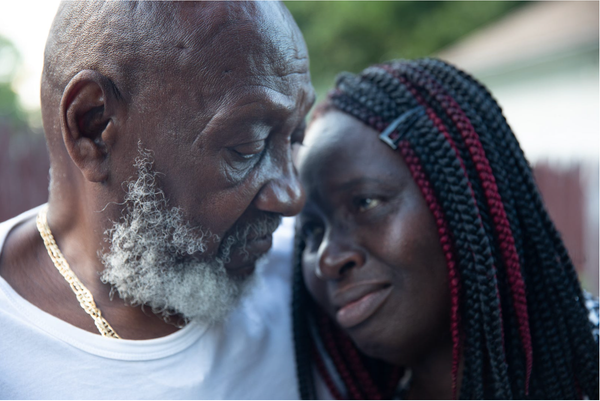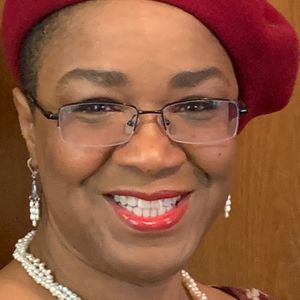In Virginia, racism is a big thing.
Racism is a big thing everywhere. Because the nature of racism is systemic and vast, racism is found in every state and town across the U.S. You would be hard-pressed to convince me that even one town is somehow different from this reality. That somehow, the people in one particular enclave are immune to racism or collectively have genuine acceptance for the cultures of BIPOC (Black, Indigenous, and People of Color) in their community. If my home state can’t successfully convince me, then no one can.
The South in general, and Virginia in particular, have distorted and muddled views of the racism in their midst. Confederate flags have long been heralded as symbols of culture, a remembrance of the past. They find their homes on many lawns. High schools are still named after Confederate leaders. This simplifying argument about culture and history is quickly dissolved if we compare the Nazi flag to the Confederate flag. Despite eventual defeat during WWII, descendants of Nazi party members do not continue to wave the flag and justify this action by claiming the flag’s familial and cultural importance.
The Confederate flag, though not treated with the same severity as the Nazi flag, is not much different. It certainly does recall a cultural era—the bloodiest war in U.S. history, fought over the legal right to own people as property.
I grew up in Virginia, and if you’ve ever visited the state, then you know history is found around every corner. The pride of Virginia is indeed both its history and the tales told through the cobblestone roads of Williamsburg and the government structures named after Confederate generals. I remember learning about Virginia history as a child and feeling proud. Today I feel differently.
As a born-and-raised Virginian, I have come to understand what is helpful to white folks when speaking about racism and injustice to other white folks, like my family members. I hope these tools help you to start more conversations, too.
Ask and Listen
I know that this point can make folks cringe. Why would we want to ask more questions of a Southern racist? We know all we need to know, right?
I am a firm believer that empathy is the cornerstone of all good communication. I can’t waltz into a conversation and expect to be heard without listening to my conversation partner, too. I know that a lot of new activists and allies get excited to share information they’ve learned with the other white members of their circles, but they often miss the crucial element of being a good conversation partner: Ask questions.

I understand this problem well because I was there, too.
It can feel exciting and empowering when we begin to dig into information about racism, acknowledging racism within ourselves, and wanting to teach others to do the same. But, no matter how important the subject matter, a conversation is a two-way street. Asking good questions is as important as providing helpful information.
Questions I asked during the last four years were: “What does ‘Make America Great’ mean to you? Is there an era of American history you consider to be peerless, and why?”
Asking questions to better understand the other person’s perspective is critical to moving forward. This not only allows you the opportunity to express interest and empathy in them as a human being, but it also forces them to critically think and consider why a message resonates with them the way it does.
A door has been opened.
Discuss, Don’t Argue
In an effort to express our ideas and information about a subject we deeply care about, it’s easy to become emotionally heated. A conversation can turn into an argument in the span of a few seconds if we aren’t prepared.
Being in grad school forced me to learn an important lesson: People don’t care about my feelings; they care about facts.
This may seem harsh, and there are of course caveats to this theory, but let me explain. In grad school, the onus is on you, the student, to produce meaningful, well-researched work. When my professors graded my end-of-term papers, they were not looking for emotional appeals for them to believe my claims. They were looking for research, facts, and data.

I know that our individual circles are made up of a myriad of people, some scholars and others not. However, this principle applies across the board: Be prepared to present objective research and evidence.
Without preparation, discussions with family can quickly turn into red-in-the-face fights at dinner about the cultural significance of the Confederate flag. We don’t want that. The goal is thoughtful, meaningful discussion and this is only possible when evidence and facts are seated at the table, too.
Be prepared beforehand, and remember that just because you are invited to a fight doesn’t mean you have to step into the ring.
Be Prepared to Be Ignorant
All right, we’ve asked questions and presented data. But what if a question is posed that we can’t answer? What if counter-evidence is brought up to which I can’t speak intelligently? What if I end up looking stupid?
These scenarios are more likely to occur than you may think. We can be as prepared as possible, and still not have all the answers. That is the story of the human condition. It is important to moderate your expectations and keep in mind that it is okay to say “I don’t know; I’ll have to look into that.”

Many of us get scared thinking that we get just one shot to have meaningful dialogue with our white family and friends about racism, so we can’t blow it. There’s no room for error. But that isn’t true. People are more likely to continue a conversation at a later date when we express humility and openness to the possibility that we don’t know it all.
Think of yourself: If you have a discussion with someone who holds an opposing viewpoint and you offer your own take, isn’t it more inviting if their response acknowledges room for growth?
It is impossible for anyone to know all the answers. It is better to prepare as best we can, and express openness to learn more when we don’t know an answer. Humility keeps the relationship alive, and allows the door to discussion to remain open.
Thank Them for Discussing with You
This last tool sounds cliché and even a little silly considering that we are having these conversations with family and friends. However, thanking someone for their time and effort in a discussion that can be emotionally triggering is important to maintain the possibility of more discussions in the future.

Being challenged in our beliefs, especially when discussing white privilege and supremacy, can feel downright terrifying. White folks have developed an array of coping mechanisms to use when we are confronted about our role in systemic racism. So if someone agrees to have a discussion with you about racism and white supremacy, it’s a big deal.
Your conversation partner is entering the situation prepared to defend their beliefs at any cost. They will feel like their very identity is being challenged (which in a sense, it is), and any of us would feel stressed in that situation.
Their willingness to discuss this subject with you is actually a step outside of their comfort zone, and should be duly celebrated with thankfulness.
You don’t need to go over the top. A simple “Thanks for talking about that with me, I appreciated hearing your perspective” can go a long way toward having future conversations. We all want to be appreciated for giving our time, especially when the conversation feels scary or triggering. It’s important to acknowledge the effort put in by both parties, not just by you.
I hope these tools help you as you move along your journey in anti-racist work and education. My aim is to establish empathetic, two-way communication without coddling or disrespect. White folks, myself included, have a lot to learn and a long way to go to effectively address racism as it is and work toward equity. A thoughtful, empathetic conversation can go a long way as we help each other along that road.
I also understand that these tools may not work for everyone in your life. This is merely a guide based on my personal experiences with white people in my own circle, but are of course malleable to your particular situation.
The aim is empathetic, two-way conversation. This isn’t a lecture, and it’s not a sprint. For us to have a meaningful impact on the people in our lives, we have to choose to run a humble marathon.
It’s harder that way, but worth it.
Top photo by Robin Jonathan Deutsch on Unsplash












Member discussion